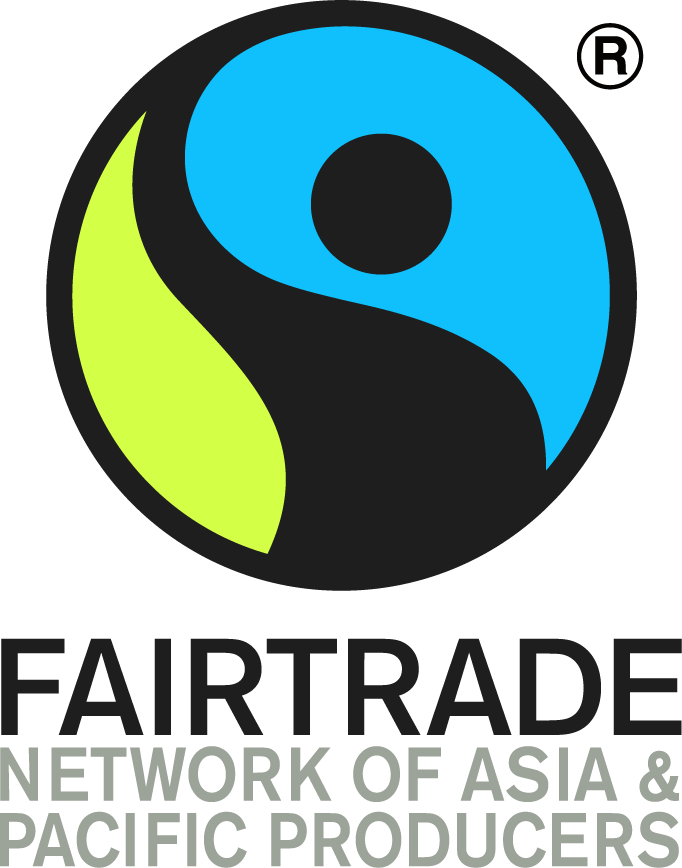Women-Led, Rooted in Tradition, and Growing Towards a Sustainable Future
A Fairtrade Premium Impact Story of Koperasi Karya Manis Sejahtera- coconut sugar producer organisation in Indonesia


Founded in 2017, Koperasi Karya Manis Sejahtera (originally named Koperasi Karya Manunggal Sejahtera) was born out of the collective vision of coconut sugar farmers, predominantly women, in Bagelen District, Purworejo Regency, Central Java. Its roots lie in the Kelompok Wanita Tani (Women Farmer Groups), legally recognized collectives of women who had already begun organizing and empowering themselves long before the cooperative came into existence. Their pioneering spirit continues today, with women at the forefront of leadership across every level of the cooperative—from executive board members and Fairtrade Premium Committee to staff, delegations, and general members.
Currently, the cooperative—fondly known as Karmatera—has 663 registered coconut sugar farmer members spread across five regencies in Central Java and Yogyakarta, of which an impressive 397 are women.


Preserving a Generational Craft with a Vision for the Future
Coconut sugar production is deeply embedded in the cultural fabric of Java. It is an artisanal craft passed down through generations—performed by household farmers, often a husband-and-wife duo. Men (or Penderes) scale the tall coconut trees (10–15 meters high) to tap the sap (nira) from blossoming flowers (manggar), while women cook the freshly tapped nira into granular or solid block coconut sugar.
This division of labour symbolizes the harmony and mutual support found in rural Indonesian households, which also defines the cooperative’s ethos.
A Fairtrade Journey Since 2018
Karmatera became Fairtrade certified in 2018, adding another layer of ethical and sustainable assurance to its already organically certified products. Since then, Fairtrade has enabled the cooperative to secure better trading terms, developmental support, and consistent income—along with Fairtrade Premium funds that have been systematically used for economic, social, and environmental upliftment.


Economic Impact: Building Resilience and Business Sustainability
- Quality Improvement and Tools Distribution
A substantial portion of Fairtrade Premium has been consistently invested in maintaining and improving product quality. Through the Household Production Equipment and Kitchen Renovation Program, the cooperative has distributed sickles, food-grade bamboo containers for sap, colanders, cooking pans, drying trays, and sieves, provided kitchen renovation materials such as tiles, bricks, terracotta chimneys, and cement and offered organic inputs like lime betel and mangosteen shell extract to stabilize coconut sap.
Over 650 members have benefited from this program.
- Strengthening Operational Capacity
Fairtrade Premium has been essential in sustaining daily operations, including regular member meetings and general assemblies, providing incentives for board members, IMS staff, Premium Committee, and delegations, and maintenance of office building, electricity and water utilities, stationery, and education sessions.
This operational support ensures smooth governance, compliance, and transparency within the cooperative.


- Long-Term Investments & Product Diversification
To broaden income opportunities, Karmatera has distributed mangosteen and passion fruit seedlings to farmer members and partnered with traders to market the fruits alongside other native varieties such as dragon fruit, rambutan, pineapple, and papaya.
Although not Fairtrade-certified yet, these fruit sales have already started adding income for farmers and revenue for the cooperative.
- Safer Coconut Farming with Shorter Trees
Climbing tall coconut trees poses significant safety risks, especially to aging farmers. To address this, the cooperative, with support from NAPP, introduced Kelapa Genjah Entog Kebumen, a dwarf coconut variety recommended by the Ministry of Agriculture:
These trees bear fruit within 3-4 years and grow to just 1-1.5 meters in height by age 6.
1,303 seedlings have been planted in a 4-hectare demonstration plot using Fairtrade Premium and Fairtrade NAPP support. The cooperative has also intercropped the plot with Kaffir Lime trees to enhance product diversity.


- Livelihood Diversification through Goat Rearing
Starting in 2023, Karmatera began supporting farmer groups in goat farming, where each group manages 2–3 goats. The offsprings are distributed among members for ownership and income generation, boosting food security and family resilience.
Social Impact: Inclusion, Education & Safety Nets
- Access to Government Social Security
Karmatera uses Fairtrade Premium to enroll its members in Indonesia’s national social security program—an innovative step since the program is generally mandatory only for formal company workers. This gives farmers work accident compensation, fatality compensation, funeral cost coverage and scholarships for children.
- Internal Social Funds and Community Support
The cooperative maintains social welfare funds to support farmers affected by natural disasters, work-related illness, or accidents, cultural and community events such as religious festivals, harvest rituals, and traditional theater (Wayang Orang).
In 2024, during severe droughts in parts of Purworejo, Karmatera provided free clean water to impacted communities using water tankers.


- Supporting Early Childhood Education
Three early childhood education centers (pre-schools) in Purworejo—attended by the children and grandchildren of farmer members—receive regular support from Fairtrade Premium through donations of desks, chairs, and learning materials and provision of additional nutrition (milk, eggs, etc.).
This ensures safe, enriching spaces for young children while parents are occupied with artisanal sugar production.


Environmental Impact: Organic, Eco-friendly, and Educative
As certified organic producers, Karmatera members implement organic farming methods and are actively trained under the Fairtrade Environmental Standards.
- Waste Management
The cooperative supports household wastewater management by distributing drainage materials and waste sorting by supplying different containers for organic, recyclable, and residual waste.
- Environmental Awareness Campaigns
Regular training sessions and awareness-raising activities on organic farming techniques, responsible water and soil usage and ecosystem preservation
These initiatives are led through the cooperative’s Internal Management System (IMS).
- Gender Leadership and Policy Implementation
Being a women-led cooperative, gender inclusion is not just practiced but institutionalized. Koperasi Karya Manis Sejahtera has developed and implemented a gender strategy aligned with Fairtrade's Gender Leadership Framework. This ensured that most delegates and leaders are women are actively involved in decision-making and governance.
Conclusion: A Model of Inclusive Growth and Sustainable Trade
Koperasi Karya Manis Sejahtera stands as a powerful example of how a Fairtrade-certified cooperative can transform the lives of small producers—especially women—through structured governance, impactful premium investments, and a deep-rooted commitment to community and climate.
